|
On November 5, 2016, Soren Knudsen became the first son to follow his father as individual state champion in IHSA Cross Country history. That’s an incredible story, and, given the difficulty of the sport and the myriad genetic and temperamental variables that go into it, perhaps wholly unique in American high school history. We have raced Soren a few times this season, and we have always been impressed by his toughness, discipline, and industry, as well as his cool hair and Viking name. But we don’t truly know his story, nor that of his father. "We're so similar, so we don't always get along perfectly," Soren told the Chicago Tribune. "But we have a connection like none other.” That’s the thing about a split sheet, a trophy, or a newspaper article. It can tell you the times and places, perhaps offer a few quotes or anecdotes. But we are completely in the dark about the men we run against, the coaches who support them, or the parents who shape them. Champions like Knudsen don’t just happen-- they are the product of thousands of tiny stories that swell to an operatic climax. On the same day that Knudsen matched his father’s legacy, we were fortunate to secure the third State Championship in our program’s history. It was hardly a preordained moment-- the senior class that took the line on Saturday had finished second four years earlier in their first race at the Hornet/Red Devil Invitational. Each runner had at times this season been injured, sick, or mentally spent. At times, the pressure of state (and even national!) expectations intruded into the sanctity of practice and scrambled our focus. Yet the story coming out of Saturday will inevitably be oversimplified. Even in our program’s 20th year, it is a story like no other. Here is a more full telling. “...And the rest of the Wildcats!” One of the first decisions made once we knew we were going to be on the trophy stand was to include seniors from our State travel team. Though they were not listed on our official roster, Alan Poe, Josh Patel, and Austin Vandersteen had proved instrumental in the team’s eventual success. Poe’s story is the sort of inspirational allegory coaches love to cite with freshmen. A running neophyte whose early races never augered much success, Poe continued to train and apply himself, incremental improvement arriving race by race, year by year. In a time-trial last week, Poe became the eighth member of his class to break 16:00. Patel had been the 7th. But after a sterling 2015 campaign, Josh spent much of the summer and early fall training through injury. Yet his commitment to the team’s vision never receded, and he became something of a mascot for the hamstrung and infirmed. Like many in the top 7, Patel’s parents weren’t high school runners, and he is something of a generational pioneer. He set out into the unknown, and in the process discovered what was truly great within him. Unlike Patel, Austin Vandersteen’s family knew all about Cross Country. As the son of head coach Paul Vandersteen and grandson of legendary XC figure Ray Vandersteen, Austin had been around runners since he could walk. Yet an unprecedented series of injuries-- from broken legs to undiagnosable ligament tear-- robbed him of three years of competitive running. The interruption of his familial tradition challenged Austin to uniquely define himself, yet even as he expanded into other interests, he never stopped supporting, encouraging, or defending his teammates. When Austin crossed the stage on Saturday, he was carrying forward the family legacy, yet he was doing so as his own man. There were, of course, many other seniors who deserved that moment on stage-- the endlessly optimistic Rishi Pandey, or the unfathomably introspective Paul Neubauer, or the inimitably rhapsodic Joe Letourneau. They were all there-- they and dozens more-- cheering, celebrating, sharing the moment. This was their story, too. Danny Winek Winek is the third of three Wineks to run for Neuqua Valley, a talented gene pool that seemed ready to reach its zenith in the form of the gifted, driven Daniel. Like his prodigious brothers, Danny is lithe, quick, and ambitious, but his competitive flames were turned up a degree higher, and his ability to focus on the more subtle aspects of training is more acute. After running well at NXNs the previous year, Danny approached the 2016 XC season with a zealot’s fervor, literally traversing the country with Jake McEneaney on a pilgrimage to the Olympic Trials this summer. But, as is often the case with great athletes, Danny’s furnace burned too hot for his frame. Following a summer of intense training, Danny was diagnosed with a rare stress fracture unique to his stride. With every stride he ran this summer, Danny was literally breaking his own back. It wasn’t his fault; he was simply built this way. He has spent his subsequent months training alone-- in a pool, on a bike, and most recently on a treadmill. He has had to relearn habits of discipline, rethink approaches to training, and reteach his feet to strike the earth. Yet Danny’s contribution to the season is hardly invisible-- by pursuing our shared goal in lonely rooms and empty pools, he galvanized the rest of the top 7. They couldn’t afford to approach training lightly, to back away from challenges. Danny was counting on them. Rodrigo Alvarez It is rare that a freshman infiltrates our top 12-- to a coach, runners like Zach Kinne, Jake McEneaney, or Connor Horn are like winning lottery tickets. Being an elite runner requires more than elite talent-- it also requires elite discipline, toughness, courage, intelligence, and luck. Excellence is more often learned than gifted. Yet Rodrigo Alvarez is not like other 14-year-olds, a point made obvious almost immediately after meeting him. For starters, he is a talented writer, thoughtful and introspective. He has an easy sense of humor, lobbing jokes back at his teammates as effortlessly as a tennis pro’s volley. He is ambitious-- he learns the names of his chief competitors and considers their racing strategies-- but he is also cagey, canny, and realistic about what he is capable of. He switches between Spanish and English as easily as most people blink, and it is clear after watching him that for years Rodrigo has been moving between different fields and worlds, never content to simply ‘go with the flow’ or fade into the background. One of the marks of genius is the effortlessness with which they carry their greatness. Wherever he goes and whatever he does, he is distinctly, simply Rodrigo. Of course he stands out. And that is how he made our top 12. Chris Keeley Like Danny Winek, sophomore Chris Keeley has only one setting-- ludicrous speed-- and has often been mangled by his body’s inability to keep pace with his will. His 2016 Track season was dominated by a stress fracture whose stubbornness matched Chris’s own. His 2016 XC season very nearly went the same way, as more than once this summer his bike careened out of control, Keeley maniacally pushing himself to achievements commensurate with his ambitions. “Why does this keep happening to me?” he asked one day in July as Coach Rossi and Coach Janota cleaned his wounds and bandaged his cuts. The unspoken answer hung in the air-- “Because you’re Chris Keeley, and you want to win so badly that it’s literally tearing you apart.” Yet 2016 was the year that Chris learned temperance, patience, and moderation. He slowly worked his way back into the rotation-- first on easy days, then in harder workouts, and finally into races. The results weren’t a straight, ascending line-- he had setbacks, tough days, and disappointments. Yet by season’s end, Keeley was where he wanted to be, where he belonged-- among the best runners in the state. Hall of Fame wide receiver Jerry Rice credited his career and his work ethic to a fear of failure. “I came from a small, predominantly black school, and I didn’t want to let them down,” he said. The thought of Rice, a prodigiously talented player, running route after route with metric precision, terrified of missing his chance, brings Keeley to mind. But what he seems to have mastered this year is that failure and setbacks do not end a runner-- they guide him. Alex Johnson Then there is the dignity of brilliantly doing your job, day after day, without parade or fanfare. That is the story of junior Alex Johnson, who is not a legacy like Danny Winek or a coach’s son like Ryan Kennedy or a phenom like Tyler Bombacino. He is the face of NVXC by being just another face in the pack. But to overlook Alex Johnson for his quiet steadiness is to miss the greatness of introverts. He is no less tortured, afraid, or complex than his teammates. He simply processes things differently. In many ways, the story of Johnson’s 2016 season is apropos. Noting a slight inefficiency in his stride, Coach Vandersteen worked with Alex to refine his form. Changing a runner’s stride is the hardest challenge in coaching-- it requires rigid discipline, tedious drillwork, and a sort of zen-like approach that makes unthinking what is actually a highly intricate motion. A runner must work against the thousands of steps he’s taken in pursuing his craft to unlearn something that is as fundamental as breathing. Yet day after day, Alex did the work. He executed workouts, lifted weights, performed drills, and dutifully logged it all. He thought about the thinking of running, met disappointment, made adjustments, and persevered. This was a different challenge than overcoming injury; it is overcoming the inertia of one’s design. When he won the Open Race at Twilight by several seconds, Alex was greeted by surprise and raised eyebrows. “Where did that kid come from?” one spectator remarked. But of course he’d been there the whole time. Tyler Bombacino One of the problems with being driven to improve is that the satisfaction for doing so has too short a season. Almost immediately after achieving a PR, a runner’s eye turns towards the next mark, and the previous time loses the intimidation it once inspired. Few runners are less satisfied by his own achievements than Tyler Bombacino. He has PRed more often and more regularly than almost any other athlete currently on the roster, yet it is just as familiar a sight to find Tyler brooding afterwards, interrogating his race for moments when he might have squeezed more from his body or held firmer with his will. Much of this is born from his fast-twitch physiology, which thrives on rest and peaks inconsistently. But it is also rooted in how relentlessly Tyler drives himself. Like Winek and Keeley, Tyler’s engine sometimes threatens to overwhelm him, and he has slowly learned to moderate its torque. Yet his race at Regionals showed that Tyler’s impatience with himself belies a previously unsuspected potential. On a rolling, uneven course, Tyler outpaced senior teammates Jeremy Hayhurst and Scott Anderson to finish as our fifth man. Tyler has always seen himself clearly, and that race finally revealed what he had been looking at for years, what he was pushing towards in the future. At Detweiller on Saturday, Tyler finally let himself enjoy a moment he had helped bring to fruition. HIs friends, family, and teammates cheered as the announcer called his name. And Tyler crossed the stage, smiling. Ryan Kennedy No matter how big you get, your father is somehow always bigger. This fact is most powerfully felt by teenagers, who are eager to define themselves as individuals, even as they are guided by standards of excellence established for them by their predecessor. There were few in attendance on Saturday who understood Soren Knudsen’s achievement more keenly than Ryan Kennedy. As the son of Head Track Coach/Assistant Cross Country Mike Kennedy, Ryan has been around first-class athletes his whole life, and, like Austin Vandersteen, he has never had the privilege of competing anonymously. Yet this season, Ryan has worked to define himself apart from his family name. Encumbered by the longer summer that kept allergens in high circulation all season, Ryan struggled to meet his personal expectations. Yet with two races in October, he began to shape a legend all his own. He won the Open Race at Conference all by himself, racing against the disembodied times of the Varsity squad. And at Regionals he posted the top Junior mark of the season, finishing just a step beyond Josh Mollway as our fourth man. He is never far removed from stories of other athletes who walked his path or times that compare to his progress. But increasingly, Ryan Kennedy is writing his own story. As he warmed up on Saturday with the Top 7, Ryan was prepared to step in should a teammate falter at the last moment. He was without fear or doubt or trepidation, at peace with his present task because of how definitively he’d shaped the moment. Everyone wordlessly understands this about Ryan. It’s who he is. Jeremy Hayhurst The first time Jeremy Hayhurst ran Detweiller, he finished 515th place, just barely sneaking past the 22:00 mark (21:59). There was no suggestion in his freshman campaign that he would one day be the fastest seventh man in the history of the IHSA 3A State Meet. The highlight of that 2013 season was a 5:59 mile time trial and the modest cessation of growth-spurt-induced knee pain. His next trip to Peoria shaved more than three minutes off his mark, but in a deep field he remained largely undistinguished. Jeremy ran 18:31 as a Sophomore. He was the eleventh best runner in his class. In his best race he finished more than three minutes behind Jake McEneaney. But something happened to Jeremy between his sophomore and junior seasons. Yes, he grew taller, stronger, leaner, and more efficient. It’s also true that he began to trust his coaches and teammates more, investing his training with increased regularity and conviction. It’s hard to find one grain of sand amidst a beach and say, “This, this right here was the one that made the difference.” But somehow, one day Jeremy looked at himself in the mirror and not longer saw a boy who ran. Instead, he saw a runner. The change was easy to miss given our astonishing depth in 2015, but Hayhurst had unmistakably arrived. In the Open Race at the Richard Spring Invitational, he finished 6th, turning in an eye-popping 16:14. He made our State travel team and cemented his reputation as the ‘plebeians champion,’ rising from obscurity to race with royalty. By the time he was a senior, Jeremy could simply not be deterred. Every race, he beat runners with a longer pedigree, a more celebrated name. Every race, he somehow got faster, bolder, more efficient. He became the exception that proves the rule explained to freshman at the beginning of every season: You do not yet know what you can become. He capped his race at Hornet/Red Devil with a simple address that rang through the season. “You guys want a speech?” he asked after our team picnic. “Let’s get after it this season. Let’s see what we can do.” Well, now we know, Jeremy. Scott Anderson Scott Anderson can remember the results of every teammate in every race in his four years at Neuqua. That’s not hyperbole-- he has an astonishing head for minutia. Often, when coaches struggled to place times and places into context, we would summon “Scandy” to rattle off previous marks, often belonging to athletes who preceded him at Neuqua. In a sport governed by tiny details, Scott was determined not to let any escape his attention. But an awareness of detail can work against runners, too. Rehabbing from his broken leg last fall, Scott grew increasingly sensitive to the rhythms of his stride and the motions of his body. He educated himself in the science of the sport, going deep on the interrelationships between systems that govern the mechanics of running. There are secrets there that can help good runners become elite in their training. Yet there are also dozens of variables that can keep a runner up at night, worrying about what could go wrong. Knowing where your food comes from can enrich the eating experience. But it can also make a man lose his appetite. So it went with Scott this season. As the calendar turned from August to September and from September to October, Scott had yet to lace up for meaningful racing. It was the Twilight Invitational that returned him to the fold, and Scott picked up right where he left off, helping secure a emboldening victory for the Varsity squad. Yet despite strong races at Conference, Regionals, and Sectionals, Scott remained dogged by doubts about pains in his legs, uncertain about if each race would mean the end of his season. Finally, during the week of State, Scott made peace with uncertainty. There was nothing left to do, and nothing more to fear. Whatever was to happen on the day of the race, he had attended to every imaginable variable in preparation. He spoke with candor and affection in our team meeting the night before the race, and he pinned his bib and jersey with the meticulous care of a surgeon. He was late(ish) for warm ups, last(ish) to the line, just like always. His race was as technically sound as a watchmaker’s timepiece, and as he crossed the line, he already knew the results. “14:55. Same as last year,” he smiled. “But this year I was 6th [for the team].” Myopic, stubborn, particular, and quixotic-- all of Scott’s weaknesses are also his greatest strengths; they made him extraordinary. We have never had a runner like him, and it is doubtful we will ever see his like again. Yet he was always Scandy, our Scandy, who understood more than anyone that all the details matter. Josh Mollway NVXC hasn’t had a team captain since 2003. Runners are by their nature often non-confrontational, and pecking orders are easily determined by times. But 2016 was different. A team defined by alpha dogs and heterogeneous training needs, clashes over pacing and workouts were as inevitable as dampness in a thunderstorm. What was needed was a consensus figure, an athlete understood as impartial, nonpartisan, and judicious. A man respected by all. Enter Josh Mollway. Like Winek, Mollway is a legacy figure, following his older brother Nathan’s path to NVXC. But by Junior Year, Josh had ascended to heights his brother never achieved, and with these elite times came elite responsibilities. Josh was trusted by coaches to find the click off the right splits, to execute the race plan, to reign in the overzealous and galvanize the ambivalent. Throughout the season, he finished first, second, third, sixth, and-- most pivotally on Saturday-- fifth in the top seven. Josh was whatever we needed him to be when we needed him most. It began to seem that week by week, whatever leak we sprang, Josh had the exact shape to plug the hole. At the Richard Spring Invitational, he was the first runner this season to dip under 15:00. It was Josh who executed the team race plan that provided the blueprint for the State Championship-- get out relaxed and conservative, then bury the final mile. His race became the template for every PR that followed. It was Josh that kept the team focused on training and oblivious to chatter outside our bubble. Sitting outside Alexander’s Steakhouse following the trophy ceremony, Josh Mollway led the seniors in an off-key rendition of Styx’s legendary ballad, “Come Sail Away.” It was pretty pitchy to listen to, but over the din of caterwauling, you could make out Josh’s defining voice: I'm sailing away set an open course for the virgin sea I've got to be free free to face the life that's ahead of me On board I'm the captain so climb aboard We'll search for tomorrow on every shore And I'll try oh Lord I'll try to carry on Matt Milostan We’ve never actually explained why Matt Milostan is called “Goose,” so here’s the story. On our first long run in August of 2013, we quizzed the incoming freshmen on their nicknames. When we came to Milostan, we had this exchange: “Do you already have a nickname?” “No.” “Anything that people call you? Like, for short?” “No.” “Anything that stands out about you? Any details or stories?” “No.” *Silence* “Okay, we’re going to call you Mongoose from now on.” That was it. There’s no event, no hidden joke. He doesn’t particularly look like a Goose. Yet like Flounder from Animal House, he got stuck with a sobriquet without any say in the matter. It was Milostan’s blankness of canvas that invited a nonsensical nickname, but what he quickly revealed was that he was anything but tabula rasa. Despite a relatively unremarkable running resume, Milostan possessed an absolutely lethal kick, and an uncanny sense of when to unleash it. More critically, he was absolutely unshakable. On the Thursday before the York F/S Invite, we held a mile-and-a-half time trial to determine a freshman top seven. Despite a searing fever and a whooping cough, Milostan gutted out six laps on the track that kept him right in the heart of Mollway and McEneaney, Vandersteen and Jett. They could not beat Milostan, even with his body on the verge of collapse. There’s a word for that-- indefatigable. It’s just not alliterative like Mongoose. By the State Race, Milostan’s finish was a fait accompli-- there was only the matter of how many bodies he would pick up in the final, furious 200 meters. By the time the results were tabulated, Milostan’s 14:47 stood as the 18th fastest Detweiller time ever run by a Neuqua runner, ahead of such luminaries as Michael Widmann, Nick Bushelle, and David Wing. As he stood on the stage, an All-State medal draped around his neck, one thing was clear: No one would ever forget the name Matthew Milostan. Jake McEneaney Jake McEneaney won his first race in a Neuqua uniform. A week later, he won his second race, this time beating a field of more than 500 runners, including, allegedly, Dominic Dina. He won his next race, too, comfortably outkicking former USATF teammate Emerson King. He won these races because he’d prepared to, mentally and physically. He was tough, talented, and determined. He won those races because he expected to. What Jake did not know at 14 years old-- what no one knows at that age-- is just how little control we have over our race. We don’t control the other runners, their preparation, investment, or will power. We don’t control our teammates, whose view of the contest can differ radically from our own. The weather, the terrain, the noise of the crowd-- these factors demand adjustments on our part as they are beyond our command. Our very bodies are vast mysteries, even to an athlete as focused as Jake. One never knows which step it is that sends the tremor through muscle and tissue that fissures bone. When it happens, the variable often most unchecked is our reactions to our own small, sad frailties. So Jake learned about disappointment, about falling short. About pushing all your chips to the center of the table, only to bust on the next hand. He learned about falling down, getting trampled. He learned that humility comes from an awareness that we are all just one heartbeat, one loose step, one lapse away from oblivion and the long climb back. He learned that winning the argument isn’t the same as winning the point, that sometimes the best comment is silent reflection. He learned to accept chaos. Jake didn’t win another XC race until Conference his senior year. By then, he’d built himself into a formidable runner feared across the state, not just because of his body, but because of his mental preparation. “I rehearse everything, everything,” he told the freshmen that September. “What do I do if the race gets out too fast; what do I do if I lose the pack. I prepare for every contingency.” There was no one on the team more prepared for the mantle of greatness. There was no one more aware of the cost. Cross Country wasn’t done teaching Jake, however. At Sectionals, he faltered-- his body seized up at the two mile mark, marring his usually impregnable confidence. For the first time in nearly two months, Jake wasn’t at the front of the medal sequence. He was just another pack runner. Jake didn’t lead the team at State, at least not in place or time. But his 14:46 earned him 21st place in the race, a spot in the All-State circle. He hoisted the State Championship trophy over his head, just as he had always expected to, just as he promised us all he would. He didn’t know how much it would ask of him when he made that promise, how hard it would be. That is what makes him great-- almost singular in our program’s history. He paid the price even after he learned its cost. Jake McEneaney came to the program a winner. And he leaves, having made himself a champion. Zach Kinne Nick Bushelle was one of the biggest, sturdiest runners we ever coached. When he reached the 2.5 mark, we would see him pop up on his toes, stick out his chest, and hammer the final 800. What bystanders don’t realize is what it feels like to be in that moment. It is pain without bottom, exhaustion without respite. Your nerves blaze, your lungs panic, and your heart shifts to red alert. You descend into a pit of suffering that seizes your imagination long after the race is done. After one race his sophomore year, Nick was so spent due to dehydration and fatigue that he could not go back to that mental place for several races. Even the toughest runners fear it. It’s a rare runner who can lower himself into that zone again and again, each time extracting his utmost effort. You can see the toll in their eyes immediately after they cross the finish line-- the dead eyes, the stooped posture. After his final race in Track and Field, Connor Horn could barely stand an hour afterwards. Knowing what you’re about endure minutes before a race can cower the most valiant and blunt the most resolute. Perhaps no other runner in our program’s history understands this more deeply than Zach Kinne. As a freshman, he pushed himself so hard at Sectionals that he had to be carried to the bus, his body hypothermic and his will absolutely spent. He didn’t fully recover for a fortnight. His wiry frame and diminutive stature comically diverge from Bushelle or Nick Dunn, and he would be forgiven if he raced this season with timidity or restraint. But on Saturday, there were few runners taller than Zach Kinne. He out-planned cagey veterans, out-paced seasoned competitors, and out-kicked faster adversaries. After supplanting Horn as the top freshman Detweiller time in program history, he edged out Aaron Beattie for the top sophomore mark. He packed more pain into his 14:41 than any man should reasonably undertake, and what’s most remarkable is that Zach perfectly understood what such effort would ask of him, and still he exceeded the threshold. For an hour afterwards, he was completely poured out. There was nothing left for him to give. As he wobbled around on unsteady legs, like a deer just learning to walk, a stranger would be confused about the enormous smile spread across his face. He’d never understand by looking at him the refinement of this young man’s conviction, the mettle of his character. And no one who wasn’t there-- who hasn’t run-- could truly grasp that for fifteen minutes in November, there was a fighter named Zach Kinne who stood big as a mountain, strong as an oak. Jackson Jett The term sui generis means “Of his or her own kind; unique; in a class by itself.” More broadly explained, it is a self-made man, without precedent or context. A true sui generis is someone whose greatness defies explanation. People like Nikola Tesla or Howard Cosell or Elon Musk think and behave in ways that do not fit the conventional paradigm and can only be explained with themselves as reference. More than any other runner we’ve ever coached, Jackson Jett is sui generis. Now, Jett would laugh if we compared him to Elon Musk (and everyone else would groan), so we’ll try and compare him to an athlete for whom he might have greater affinity: Allen Iverson. Here’s what sportswriter Bill Simmons said of Iverson: The league had never seen anything like him: brash, unapologetic, stubborn as a tree stump and twice as hard. He’s listed at six feet but couldn’t be taller than five-foot-ten, so every time he attacked the basket, it was like watching an undersized running back ram into the line of scrimmage for five yards a pop. He took implausible angles on his drives (angles that couldn’t be seen as they unfolded, even if you’d been watching him for ten years) and drained an obscene number of layups and floaters in traffic. He had a knack for going 9-for-24 but somehow making the two biggest shots of the game. And he played with a furious intensity that only KG and Kobe matched (although MJ remains the king of this category). For years and years, the most intimidating player in the league wasn’t taller than Rebecca Romijn. His coaches loved him to death even as he made them age faster than the president. You couldn’t invent Allen Iverson. He simply existed, and that’s enough. That’s the basketball equivalent of Jackson Jett. He always had the tools of a great runner-- lean but powerful frame, a high motor, a sense of theatrical brio, and an instinct for the big moment. But for as many aspects of Jackson that are quintessential in champions, there are just as many that left his coaches and teammates scratching their heads. He can be pathologically intractable and hotheaded; he could get in a fight with a nun if he believed she doubted him. Watching him do lunges is like watching a baby gazelle discover its limbs.His races could be maddeningly inconsistent; he could lose to Jake by 22 seconds at Lockport only to nip at his heels a week later at Twilight. Yet somehow-- inconceivably-- he now owns the seventh fastest Detweiller time in our program’s history. In many ways, Jackson’s State Race perfectly sums up his existence as a runner. He PRed by more than 20 seconds. 20 seconds! How is that possible? How many All State athletes can ever say that? He beat runners he had never beaten before, and he did it as convincingly as Muhammad Ali laid out Sonny Liston, as surgically as Michael Jordan destroyed Clyde Drexler. It’s not that he hadn’t prepared for the moment, for Jackson had worked hard to ready himself physically and emotionally. It’s that we had not prepared for a race like this. No one had. It was without precedent. And perhaps that is the best thing to say about Jackson Jett. Like Chris Derrick, Danny Pawola, Taylor Soltys, and Aaron Beattie, there has never been anyone who has worn the Neuqua colors quite like Jackson. From now on, any story that is told about him will be immediately believed. Jackson swam the English Channel? Sure, that sounds right. He won a bullfight in Valencia? Of course he did. He was the top finisher on a State Champion Cross Country team? Naturally.That’s our Jett. Epilogue
In many ways, what’s most important about the stories of these athletes is how unremarkable they are in Illinois. Every team has their myths and lore, and although there are no tales quite like Soren and Jim Knudsen, every runner on the course has a father whose relationship is no less complex, rich, or meaningful. The Trojans of Downers Grove North will be telling incoming freshmen about Alec Danner and Andrew Marek in the reverent tones that Lake Zurich reserves for Brian Griffith and Matt Pereira. Cross Country produces heroes as reliably as Illinois grows corn, and the folklore that come out of the State Meet is one of its greatest recommendations. But then again, 2016 will always be a story like no other. Because of a boy who got seven minutes faster, and a teammate who never forgot a split. Because of a once-and-future captain and a mongoose named Matt. Because of Jake McEneaney’s heart, Zach Kinne’s grit. Because Jackson Jett existed, and that’s enough. The parents and coaches who stay behind will tell these stories, over and over again, as though they could conjure the battles again through words because they stay ever-young, ever-fresh, ever-triumphant. The race lasts 15 minutes, thrice around the field, and its done. But a legend? That stays forever. Results Dyestat Recap Video Daily Herald Article Tribune Article Naperville Sun Article MilesplitIL Recap
3 Comments
|
News Categories
All
Archives
August 2022
|

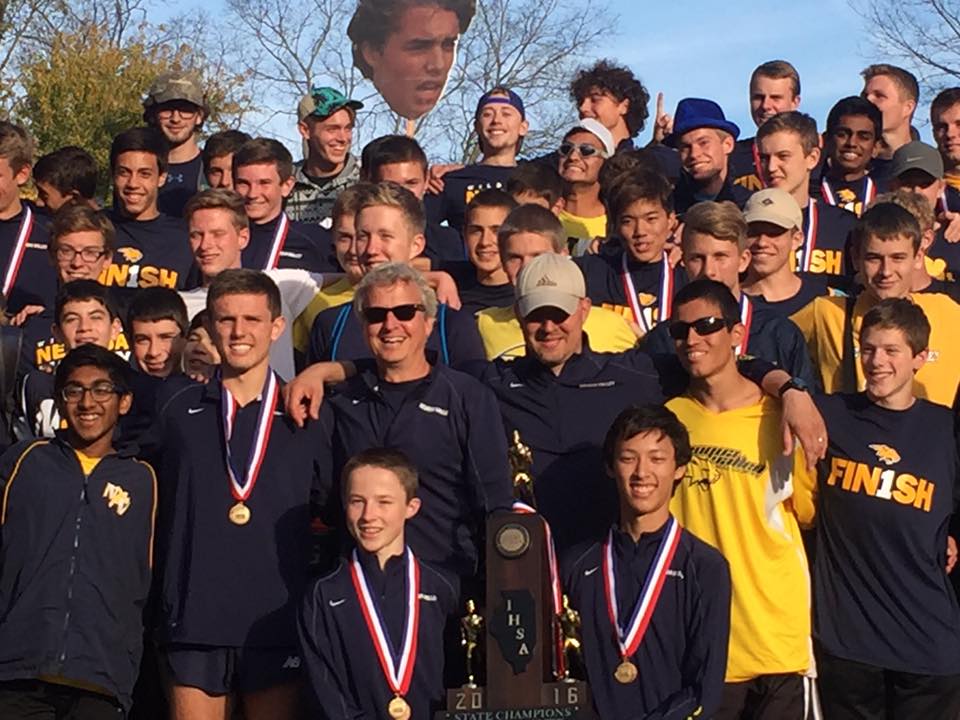
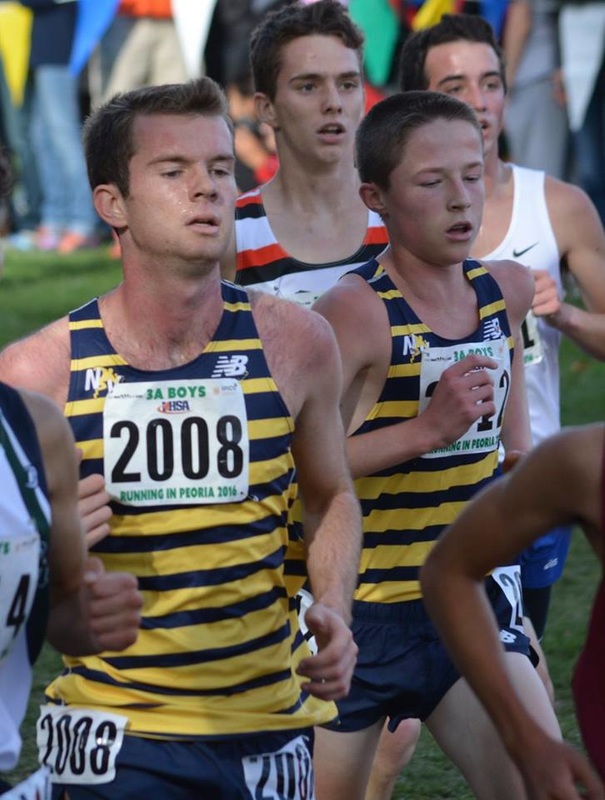
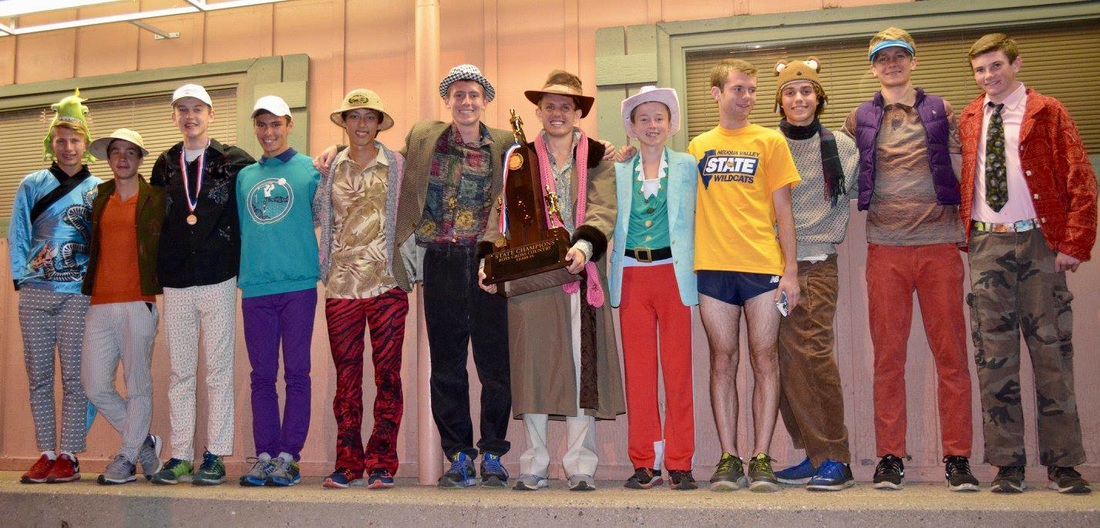
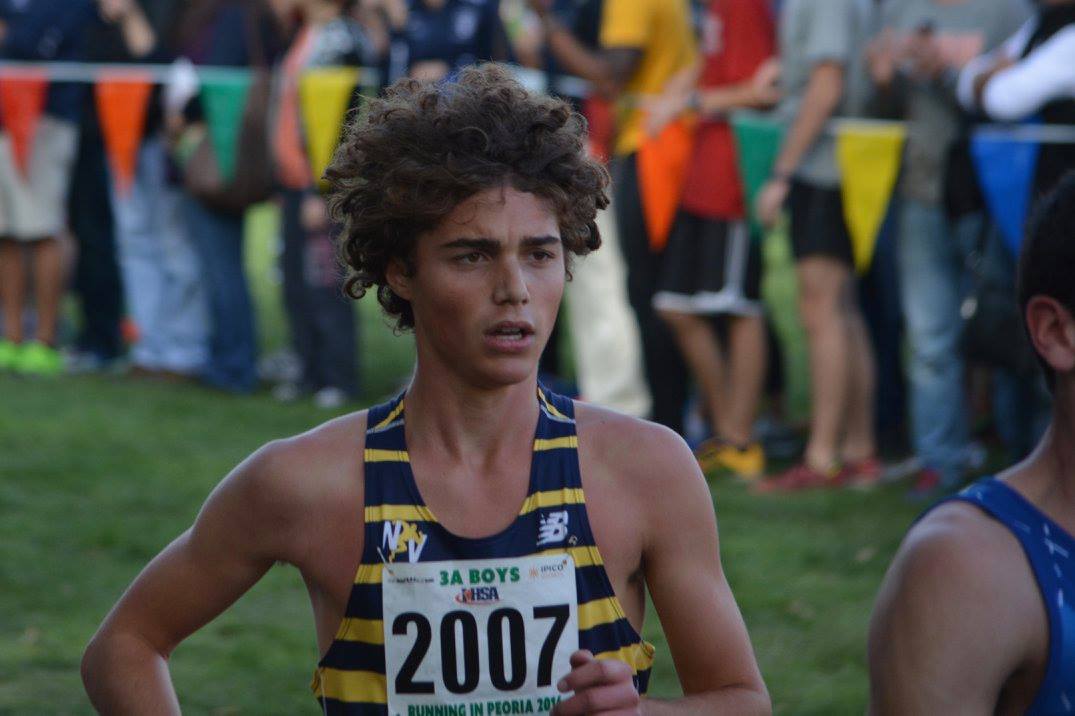
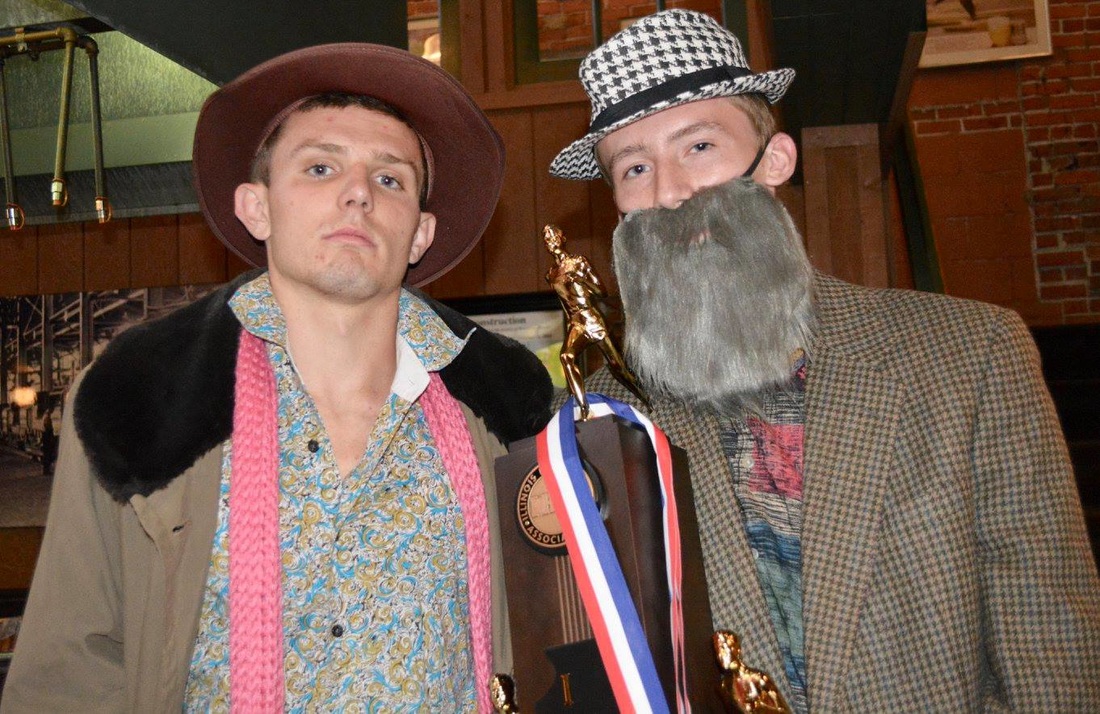
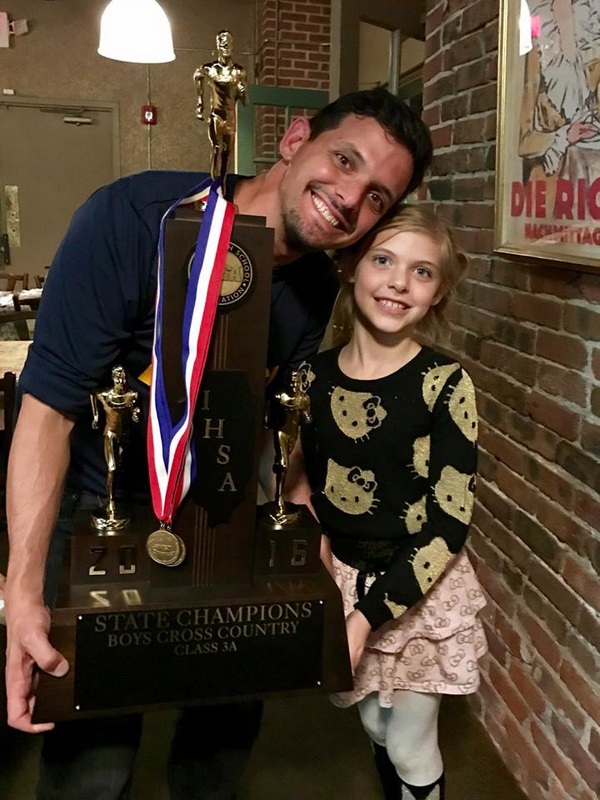
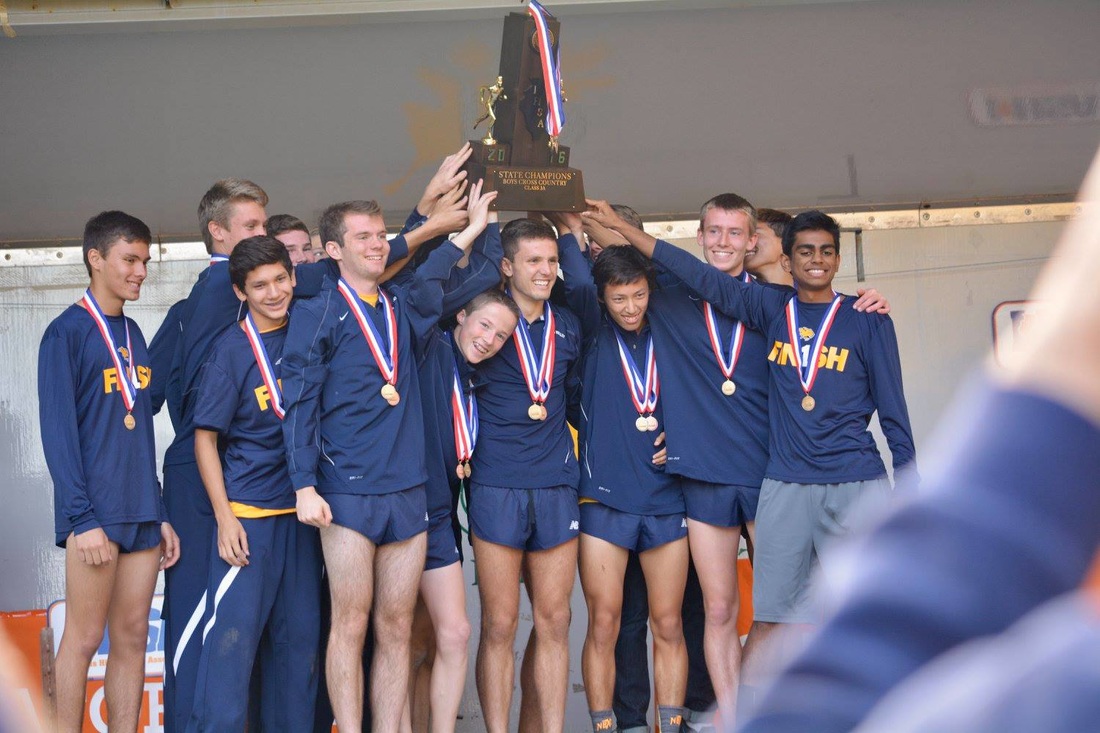
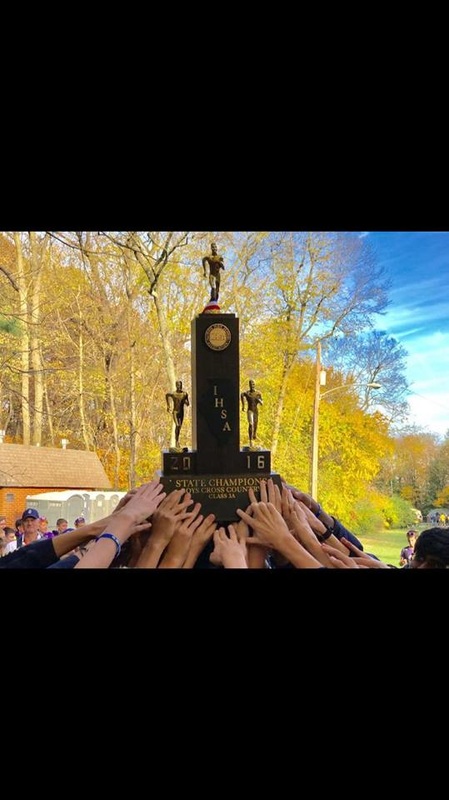
 RSS Feed
RSS Feed
